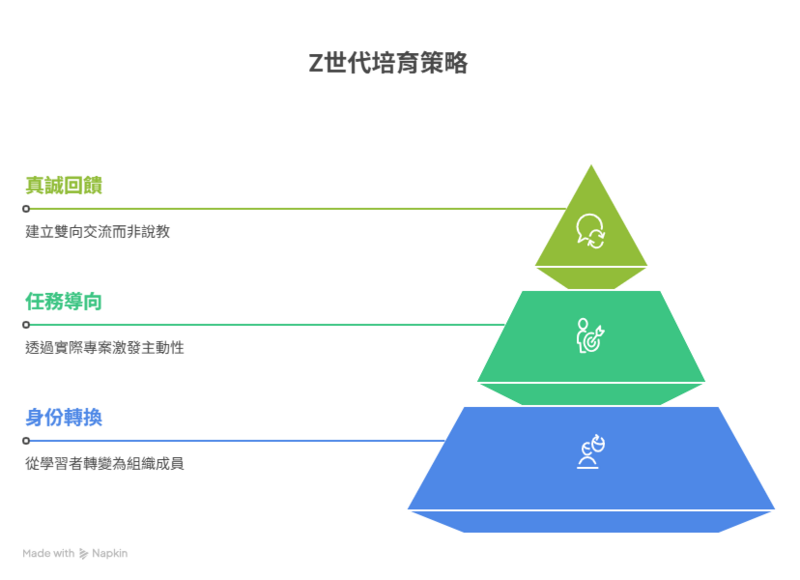

As long as companies are willing to adjust their policies, the potential of Gen Zers is far greater than many assume. This year, our group shifted from an internship model to a part-time employment model. This small adjustment produced a significant impact, leading us to distill three principles: assign Gen Zers clear roles, give them meaningful tasks, and provide consistent feedback. We discovered that these transform Gen Z into a source of fresh energy for the organization.
To many employers, Gen Zers are often perceived “unstable” or “irresponsible.” At Jet-Go Consulting Group, which includes Jet-Go Consulting, Soundline Consulting, Pulse Research, Popcorn Digital, and Great Society Survey Center, our three decades in Taiwan’s strategic communications industry has shown us otherwise. With the right development framework and opportunities to perform, Gen Zers demonstrate surprising levels of maturity, accountability, and commitment.
For years, our group has invested in campus partnerships. Working with the 104 Job Bank Career Academy, we have visited universities to share both the expertise and the real challenges of public relations and marketing. Through initiatives such as our Finding the Next Influencer internship program, we give students early exposure to the workplace while helping create a healthy, sustainable pipeline of future talent.
In the past, we recruited interns under a stipend-based model, providing training within a limited timeframe. This year, we made a pivotal change—shifting to a part-time employment model. What appeared to be a small adjustment led to striking results.
Following our announcement, we received nearly 100 applications and selected eight candidates to join as part-time employees. They were no longer simply “students gaining experience” but were expected to learn through real work and taking ownership of their results, namely “learning by doing.” This role shift had an immediate effect: tardiness and absenteeism dropped, engagement increased, and their sense of belonging to the company grew stronger. More importantly, by executing real tasks, these Gen Zers began to appreciate the responsibility and professionalism required to deliver meaningful results.
Even more encouraging, more than half chose to remain with us as part-time staff after the semester resumed. Their feedback was highly positive: they gained clarity about career direction and became noticeably more proactive. For example, after their final presentations, we offered optional one-on-one sessions with supervisors. Contrary to the stereotype that Gen Zers avoid extended discussions, they actively sought out these conversations, absorbed feedback carefully, and demonstrated a genuine eagerness to grow.
From this experience, we identified three principles for cultivating Gen Z talent:
These three principles help bust the myths about Gen Z. By assigning Gen Zers roles, tasks, and giving feedback, organizations can unlock their sense of responsibility, growth potential, and capacity to inject new energy into the workplace.
Talent development has never been a one-way investment. It is a process of mutual growth. Gen Zers seek recognition and trust, while companies need the courage to innovate. With the willingness to adapt, organizations can achieve win-win outcomes across generations.
.png)
We use cookies to provide better user experience. By clicking "Accept" or continuing to access our website without changing your browser settings, you consent to our use of cookies and our Privacy Policy.
